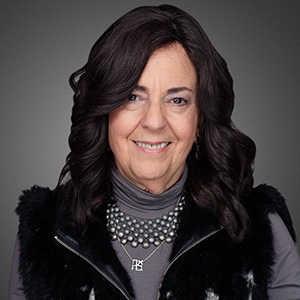Celebrating a Yahrtzeit

There’s a candle, people gather, there are speeches, perhaps refreshments or even a full meal. Yes, all the elements of an event
“What’s a yahrtzeit?” asked my granddaughter’s seven-year-old playmate.
“Oh,” replied my worldly granddaughter, “it’s a birthday party for someone who is dead.” From her perspective, it was a perfectly logical explanation. There’s a candle, people gather, there are speeches, perhaps refreshments or even a full meal. Yes, all the elements of an event, except that the guest of honor is not present… at least not in earthly form.
Our job is to remember and recognize the date when that special neshamah left this world. I must admit that in some small way (okay, maybe not so small) I envied my husband’s options for recognizing his parents’ yahrtzeits. The Shabbos beforehand, he’d daven from the amud. On the yahrtzeit, he would fast and daven for the tzibbur, and then we’d drive out to the beis hakevaros where his parents are interred. In the evening, he’d make a siyum at our home or at a nearby shul.
But even yahrtzeits need mazel. My parent’s kevarim are near my childhood home, outside Detroit. My father left us three days before Pesach, when trips to the Midwest are not a real possibility. My mother passed away in mid-January, when such trips are not recommended. My recognition of my parents’ yahrtzeits was therefore limited to a 24-hour candle in a little metal can that sat on our marble mantel. My husband did try to daven from the amud, but if there were men who had yahrtzeit of a parent, their chiyuv took precedence. I understood that, but I still felt that I was failing to give my parents’ neshamos adequate recognition.
I remember my father commemorating his parents’ yahrtzeits; he would take a bottle of schnapps to shul, along with some kichel or other baked goods. I assume he davened from the amud. While I knew many people hosted full-blown yahrtzeit seudos for extended family, my father felt that a yahrtzeit was a day for quiet reflection.
But one year, my mother’s yahrtzeit fell out on a Motzaei Shabbos, I decided to go with the flow and scheduled a Maleveh Malkah, inviting my many nieces and nephews. I went all out, preparing bagels, smoked salmon, fish platters, and cheesecakes.
On that Shabbos afternoon, the snow started to fall. I wasn’t initially fazed; I’m a Midwesterner. By the time we said Havdalah, news reports were warning of an imminent blizzard. Then the phone rang: My sister-in-law, the mother of many of the guests, begged me to cancel the event and keep her offspring off the highways. Reluctantly, as I gazed into my overstuffed refrigerator, I realized that the only intelligent move was to cancel the seudah. I took this as a sign from Heaven that this sort of yahrtzeit seudah was not the Heavenly ordained mode of recognition for my beloved parents.
After the passing of my husband, my daughter’s rav suggested that she learn Pirkei Avos, as they are a form of Mishnayos, which are recommended as a zechus for the neshamah. That prompted me to do more research, and my rav gave me a set of seforim discussing yahrtzeits. The author mentioned that since the prior Shabbos is connected to the yahrtzeit (thus men daven from the amud), women could have the yahrtzeit in mind when bentshing licht on that Friday night. Hmm, I thought, something to add to my repertoire. But somehow, I didn’t feel that was enough. And then it came to me. Eureka! I would do what I do by nature: write.
Thus was born “My No Cooking, No Calories, No Driving to Brooklyn, No Looking for Parking Yahrtzeit Seudah.” On the evening of the yahrtzeit, I sit at the computer and write a biographical sketch of the beautiful person whose memory we are “celebrating” that day. I then email it to the grandchildren and even to great-grandchildren, many of whom carry the names but know so very little of the very special individual for whom they are named.
The feedback has been amazing, with many family members telling me that they print out the pieces to share with their children. Over the years, I tried different formats: One year, I printed pictures from my parents’ family albums to share with everyone; another year, I scanned articles from the newspapers of the day, which spoke of my parents and their public role in building Jewish life. This year I asked the grandchildren who’d known them personally to write their memories, which I then shared with the others.
It’s not schnapps and a kichel, but I like to think that my parents would be pleased with the recognition of the day.
In memory of Saadya Yehoshua ben Eliezer a”h, whose yahrtzeit is the fourth of Iyar.
Yehi zichro baruch.
(Originally featured in Family First, Issue 894)
Oops! We could not locate your form.



